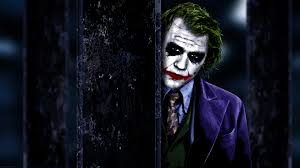joker
英 [ˈdəʊ.kər]
美 [ˈdʒoʊ.kɚ]
- n. 爱开玩笑的人;家伙;丑角牌
- n. (Joker)人名;(瑞典)约克
使用频率:

记忆方法
将“joker”分解为“joke”和“er”。想象一个“er”(人)是“joke”(玩笑)的高手,总是能带来欢乐和笑话,这样就能记住“joker”是指开玩笑的人或玩笑制造者。
以上内容由AI生成, 仅供参考和借鉴
中文词源
joker 百搭,王牌
来自joke,玩笑。字面意思即逗人笑的人,小丑。原作为扑克牌的野牌使用,即wild card,但由于其用法的灵活性,最后成了最大的牌。
英语词源
- joker (n.)
- 1729, "jester, merry fellow," agent noun from joke (v.). In generic slang use for "any man, fellow, chap" by 1811, which probably is the source of the meaning "odd face card in the deck" (1868). An 1857 edition of Hoyle's "Games" lists a card game called Black Joke in which all face cards were called jokers.
American manufacturers of playing-cards are wont to include a blank card at the top of the pack; and it is, alas! true that some thrifty person suggested that the card should not be wasted. This was the origin of the joker. ["St. James's Gazette," 1894]
权威例句
- 1. Tell that joker to stop using my parking space.
- 告诉那个家伙不要占用我的停车场.
- 2. She put down a joker.
- 她出了一张百搭牌.
- 3. He is, by nature, a joker, a witty man with a sense of fun.
- 他天性是个爱开玩笑的人,说话诙谐,很有幽默感。
- 4. Today's front page of The Sun carries a banner headline "The adulterer, the bungler and the joker."
- 《太阳报》今日头版大标题为《奸夫、笨蛋和小丑》。
- 5. Everyone knew each other well, except for the new guy Jason, who was the joker in the pack.
- 除了那个新来的家伙贾森, 大家彼此都很了解, 只有他让人捉摸不透.